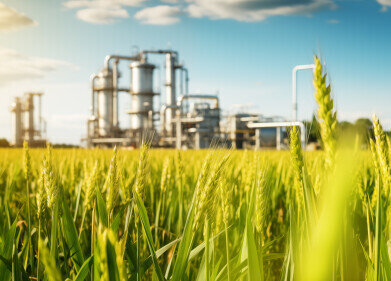Fuel for Thought
Conservatives Win! But What Does that Mean for the Oil and Gas Industry?
May 17 2015
Last week, the General Election yielded the surprise result of an overall majority in the House of Commons for the Conservative Party. This signals another four or five year term for David Cameron as Prime Minister of the United Kingdom. But what does this mean for the UK’s oil and gas industry?
Tellingly, shares of gas company IGas rose by around 17% following immediately on from the election results, indicating public belief in Cameron’s support for the industry. Indeed, the PM has long been a supporter of fossil fuels and especially the controversial practice of hydraulic fracturing, or fracking.
Fracking to Revive Oil Industry?
Over the last five years, UK petrol production has been steadily declining from 69 million tonnes in 2010, to 44.5 million tonnes in 2013 to just 43.5 million tonnes last year, a fall of more than a third over the period. In effort to curb these falling production figures and the decreased investment in the industry that inevitably accompanies them, the previous UK coalition government with the Liberal Democrats pledged £1.3 billion of support to the industry. This pledge was hoped to spark a 15% revival in production figures by 2020.
It’s clear that the Conservatives view fracking as the ideal way to achieve this. In 2014, Conservative Chancellor George Osbourne stated: “The government is taking steps to ensure that the UK leads the way with shale gas regulation.” While ploughing ahead with plans for IGas to develop a five-year fracking extraction scheme in the North West and East Midlands, the Tories have been keen to make the right noises about ensuring the practice meets required safety standards.
These standards would presumably include such measures as the deployment of onsite infrared grease and oil monitors to attempt to reduce public concerns about the environment and achieve a safe fracking process.
The Opposition
Of course, not everyone is happy about the proposed plans. Environmentalists have been campaigning against fracking since its widespread inception in the States some years ago. The major concerns cited by opponents are the possibility of contaminating groundwater, the seismic implications and the carbon and methane emissions that it would entail.
Proponents of the practice, such as Chris Faulkner, have attempted to allay these concerns and vouchsafe fracking's reputation. However, such arguments have not been enough for many quarters, including the Environmental Audit Committee (EAC). In January, the EAC recommended that a moratorium be placed on fracking, due to it interfering with the UK’s renewable energy targets and its harmful effect on our emissions count. While Scotland heeded the advice and banned the practice earlier this year, the Conservatives look set to ignore it.
For the oil industry, the future’s bright – the future is Tory.
Digital Edition
PIN 25.2 Apr/May
April 2024
In this Edition Safety - Carbon monoxide toxic and flammable gas detection Analytical Instrumentation - Density: A fundamental parameter at critical stages within the petroleum sector...
View all digital editions
Events
May 05 2024 Seville, Spain
May 06 2024 Riyadh, Saudi Arabia
May 06 2024 Houston, Tx, USA
May 06 2024 Houston, Tx, USA
Canada Gas & LNG Exhibition & Conference
May 07 2024 Vancouver, BC, Canada


















